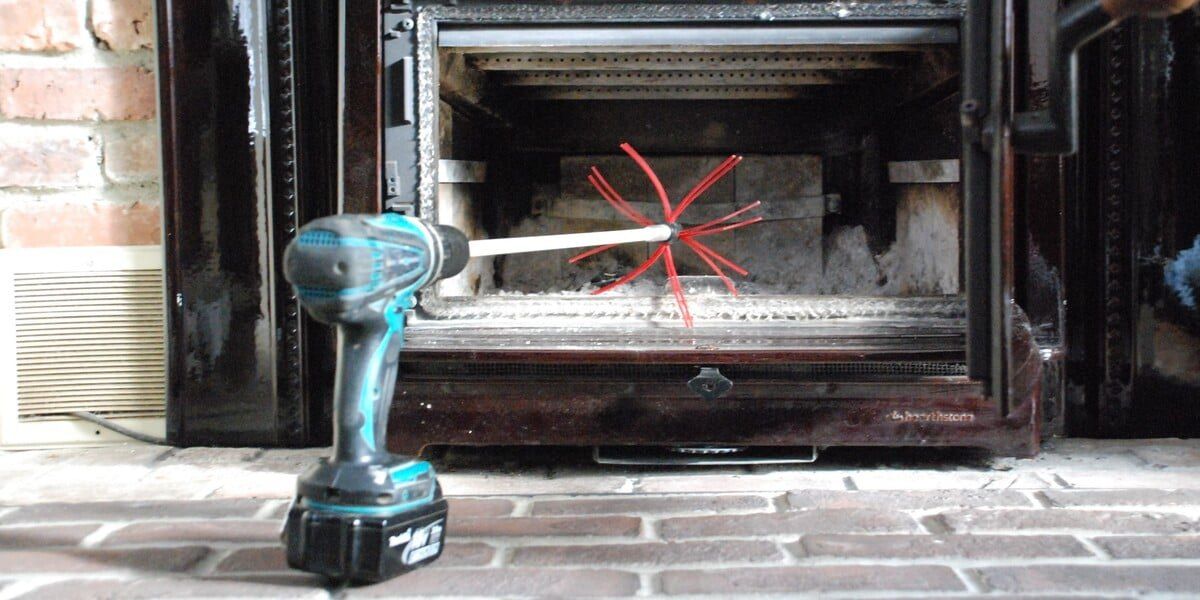Professional Chimney Cleaning Tools & Techniques

Table of Contents
1. Introduction to Professional Tools
Professional chimney cleaning requires specialized tools designed to safely and effectively remove creosote, soot, and debris from chimney systems. Understanding these tools is crucial for both professionals and informed homeowners.
The difference between professional and amateur chimney cleaning lies primarily in the quality and sophistication of tools used. Professional equipment is designed to handle the toughest cleaning challenges while maintaining safety standards required by industry professionals.
2. Essential Cleaning Tools
Every professional chimney cleaning operation requires a core set of tools designed for specific aspects of the cleaning process.
Professional Wire Brushes
Heavy-duty steel brushes designed for aggressive creosote removal. Available in various sizes and configurations for different flue types.
Flexible Cleaning Rods
Fiberglass or polypropylene rods that bend and flex through chimney turns and bends without damage.
Industrial HEPA Vacuums
High-powered vacuum systems with HEPA filtration for safe debris collection and containment.
Chimney Inspection Camera
High-resolution cameras for thorough pre- and post-cleaning inspections with recording capability.
Professional Drop Cloths
Heavy-duty protective coverings for furniture and flooring during cleaning operations.
Specialized Hand Tools
Scrapers, brushes, and debris removal tools for detailed cleaning work and tight spaces.
8. Professional Techniques
Professional chimney cleaning involves systematic techniques developed over decades of industry experience. These methods ensure thorough cleaning while maintaining safety standards.
Top-Down Cleaning Method
The most common professional technique involves working from the roof down, allowing gravity to assist in debris removal. This method provides the most thorough cleaning results and is preferred by most professionals.

- Roof safety setup and chimney cap removal
- Initial inspection with camera equipment
- Brush system assembly and insertion
- Systematic cleaning from top to bottom
- Debris collection and vacuum removal
- Final inspection and documentation
- Equipment cleanup and customer walkthrough
Bottom-Up Alternative Method
Used when roof access is impossible or dangerous due to weather conditions, steep pitch, or structural concerns. This method requires more skill and specialized equipment but can be equally effective.

9. Cost Analysis & Investment
Understanding the investment required for professional-grade chimney cleaning equipment helps both professionals and homeowners make informed decisions.
Professional Equipment Investment
The cost difference between professional and consumer-grade equipment reflects durability, effectiveness, and safety features required for commercial use.

| Equipment Category | Professional Grade | Consumer Grade | ROI Period |
|---|---|---|---|
| Complete Brush System | $400 - $800 | $150 - $300 | 5-10 cleanings |
| Industrial Vacuum | $1,200 - $3,000 | $300 - $600 | 15-25 cleanings |
| Safety Equipment | $500 - $1,200 | $200 - $400 | One-time investment |
| Inspection Camera | $2,000 - $5,000 | $300 - $800 | 20-40 cleanings |
| Total Investment | $4,100 - $10,000 | $950 - $2,100 | Professional Setup |
Professional cleaning service: $200-400 per cleaning
Professional equipment investment: $4,100-10,000
Break-even point: 15-25 cleanings (ideal for professionals or frequent maintenance)
12. Conclusion
Professional chimney cleaning tools represent a significant investment in safety, efficiency, and quality results. Whether you're a professional chimney sweep or a dedicated homeowner, understanding these tools and techniques is essential for maintaining safe, clean chimney systems.
- Professional-grade tools provide superior cleaning results and safety
- Investment in quality equipment pays off through durability and performance
- Proper technique is as important as having the right tools
- Safety equipment is non-negotiable for any cleaning operation
- Regular tool maintenance extends equipment life and ensures reliability
Remember that while the right tools are essential, proper training and experience are equally important. For homeowners, understanding these tools helps in selecting qualified professionals and maintaining realistic expectations about the cleaning process.